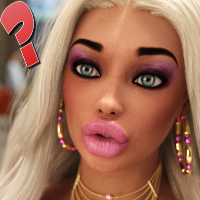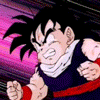JulieYBM wrote: Wed Dec 11, 2019 9:05 am
Going to take the incredibly brave position of "moe is harmless and has been baked into the cake of anime since the 1980". The issue here is a single series seemingly being latched on to by weird woman-hating westerners.
Moe
itself is inherently dehumanizing of women by its very core nature. The barely-veiled subtext of Moe is that young girls exist
solely to be cute and defenseless for the purposes of fulfilling a protector/provider/sexual dominance fantasy for the audience: the audience implicitly being young men who are isolated, shy, lonely Hikikomori-types who are unskilled at socializing in real life and have few or no friends or relationship experience, and who need this feeling of being a protector/lover of a young, frail, innocent girl to fill a deep, longing void in themselves (brought about by a combination of loneliness, social isolation, and total lack of real relationship experience with real people).
They thus seek out this toxic and horrible fantasy of basically "taking ownership" of a young girl (a generally under-aged girl: her at least
coming across as under-aged in her physicality and demeanor is a HUGE part of the fantasy, for various sickening reasons) who is like a lost puppy: perpetually innocent, naive, and doe-eyed, as well as completely incapable of looking after herself and is in need of a "protector" figure: that protector obviously being the main male character/audience self-insert figure.
A Moe Girl, by its classic definition, is a character who is made to make the (overwhelmingly male) audience feel a mixture of paternal protectiveness and sexual attraction. This most certainly is not just limited to a show like DearS: I only brought that one up because of both the direct connection to literal slavery in its plot as well as how over-the-top on-the-nose blatantly obvious it is about this subtext. This subtext though is inherent and "baked into" virtually ALL of Moe.
And no, Moe was in NO WAY "baked into the cake of anime" from the medium's inception. That's both factually/historically incorrect, as well as ludicrously ridiculous. Never mind the 80s, the history of Japanese animation in its entirety dates back to pre-World War II silent shorts (which in NO WAY contain even the vaguest threadbare hint of Moe-like themes), and the post-war era of both anime and manga were defined in large part by both Osamu Tezuka's earliest works (which likewise in NO WAY contained these specific kinds of sexual subtexts) as well as in early Garo/Gekiga works, which have their roots
firmly in Japanese counter-culture and social subversion (and while those works certainly have their own issues with women, they were certainly in large part in
diametric opposition to the kinds of sexual themes inherent in Moe).
Moe, as we know it today, certainly has some of its early foundations in some 1980s works (which were very much a kind of proto-Moe) but Moe in the modern sense wasn't really fully codified and fleshed out into the kind of cottage industry and thriving subculture that its been for the last 20 years until sometime post-Evangelion in the mid/late 90s, where the popularity and Moe-like appeal of the character Rei Ayanami among hardcore Otaku helped indirectly lead to the modern day incarnation of Moe.
This in NO WAY however means that Moe was "baked into the cake of anime itself" as the history of anime and manga LONG predates the earliest prototypical 1980s incarnations of Moe by many, many decades. The specific social conditions (primarily among young Japanese men post-1970s) that lead to the creation of Moe simply DID NOT EXIST in almost any way during the first few decades following World War II, never mind in the pre-war period. Calling Moe an intrinsic part of anime from its very inception is just blatantly ahistorical, and comes from a grossly incorrect framing that the sum history of anime & manga only starts within the past 35 to 40-someodd years.
And no, this kind of "protector of this innocent/fuckable young female" misogyny is in NO WAY restricted solely to Western Otaku: this has its roots VERY much firmly in Japanese society, dating back at least to the early 1970s and the earliest forms of "Idol Culture", which came about right during and as a direct response to Japan's own "uman ribu" (women's lib) movement where women were first entering the modern Japanese workforce and really started leaving behind the whole "Geisha/housemaid" societal role, and Japanese men first started feeling a sense of longing nostalgia for the prominence of those female roles, as well as a sense of emasculation from the fallout of their gradual dissolution.
Moe in the modern day anime/Otaku sense is VERY much spiritually (if not directly) linked to very much the same societal threads as Japanese Idol Culture, and the strand of misogyny/patriarchy inherent in both are VERY much one and the same in a great many respects.
I'm well aware of some of the books/sources that you've read, recommended, and parroted on the subject of Moe (the Moe Manifesto and suchlike), and those books are absolute and utter crap filled with self-deluding rationalizations (and in some cases, outright rape & pedophilia apologetics) from the very kinds of fans/creators who are very much the beating heart of the worst kinds of female-degrading toxicity infecting and influencing Otaku culture for most of the last 25 years now, if not longer.
I'm also well aware of where your primary interests in anime and manga lie, I've read many of your posts and tweets on these subjects all throughout the years that you've been actively participating in this community: and I can say with absolute and 1000% factual certainty that your range of anime/manga history, while certainly laser focused and plenty thorough in certain arenas (and even well eclipsing mine in a few cases), is overall VERY narrow and limited by your own sexual and aesthetic interests, and there are GAPING holes in your knowledge and awareness of the broader and longer history (both creatively and culturally) regarding Japanese anime and manga as artistic mediums.
Your areas of focus are largely on the technical aspects of the animation process (above and beyond anything else it seems), as well as
some of the creative roots of modern Shonen, ecchi, hentai, and Moe. There are ENORMOUS swaths more context and history however to be explored and understood that are
far beyond those realms that put them in a MUCH different light and different contextual understanding, extending all the way back to pre-war Japan and well into the cultural revolution of the 1960s.
And this isn't just solely some Westerner's "gaijin" outsider perspective on this stuff: numerous female Japanese fans and creators have been more and more increasingly speaking out against the toxic nature and influence of Moe and Moe-like works on Japanese social media for much of the past 7 or 8 years now at least.
I honestly wish I said more on this subject to you a MUCH longer time ago in the past, but a there's SUCH great deal about your overall perspective on anime and manga that are just COLOSSALLY misguided and rooted in some of the worst and most corrosive aspects of both mediums and their associated subcultural communities, and you seem to be genuinely unaware and blind to the fact that many of the parts of both that you've most strongly championed and lionized for much of the last decade+ now are some of the most immensely misogynistic and anti-woman corners of Otakudom, and are 1000% antithetical to your own identities as a woman (trans or otherwise) and as a socially left-leaning person.
Obviously I don't think that you are in any way some kind of "closet misogynist" yourself of course (I mean, that's pretty obvious at this point): I just think that you haven't read or experienced enough or looked into some of these things as closely as you probably should've, and that you have some VERY deep and stubborn blinders on regarding some of these things based upon mainly your own personal history and experiences with them (and how many of them have no doubt helped you to realize your own sexual identity and rebirth) and haven't really faced up to any of the uglier realities lurking behind a lot of them.
Suffice it to say, guys like Mamoru Oshii and Hayao Miyazaki (and Satoshi Kon, RIP) were, are, and remain VERY MUCH on 100% the correct side of things in many of the virulent and wholly justified criticisms they've espoused toward Otaku culture and anime titles, and the problem with much of your own writings and viewpoints on these matters has been your own lack of critical understanding and awareness of the greater historical contexts surrounding the medium that you love and cherish so much.
I'm not saying this to pick on you or to belittle you or to embarrass you or to be a condescending prick: I'm saying this because I genuinely give a shit, and because you have for a LONG time now in your various writings and postings helped spread and propagate (however blindly and unknowingly) some INCREDIBLY toxic and horrible things about Otaku culture that are COMPLETELY at odds with your own Leftist LGBTQ identity, and you've demonstrated almost NO conscious awareness or understanding about that whatsoever and seemingly NO ONE has been telling you differently up till now. Either because they aren't informed enough on the subject, or its just too uncomfortable for them to broach to you.
Please, PLEASE look more deeply into Japanese social history, outside of just anime and Otaku culture, and look more into other areas of manga and anime that are well outside of and apart from mainly ecchi and Shonen works. Look into Garo Magazine and its incredibly dense and important history, look into more of Tezuka's less iconic and popular works (like Message to Adolf and Metropolis) and at what prompted him to first expand his signature artistic style into more experimental realms, look into artists like Shigeru Tamura, Suehiro Maruo, Goseki Kojima, Shigeru Mizuki, and Yoshiharu Tsuge (for just a VERY small sampling), and moreover look into who THEIR influences were and what kinds of experiences and social movements inspired their own work and at the broader Japanese contexts surrounding those.
For all the incredible amounts of love, obsession, and fixation as you've shown towards Japanese animation and manga throughout your years in this community, there is still a GIGANTIC amount that you not only don't even remotely know about and remain ignorant of, but are relentlessly and at times
infuriatingly misinformed about and are lacking in critical broader contextual and historical understanding about.
The Moe thing is very much outwardly and obviously symptomatic of it, but it certainly goes even deeper than that as well, and I've noticed for
years now in your writings that it leads you down all kinds of misguided, confused, and distorted pretzel-logic regarding what exactly most anime & manga even IS, what it started out as originally, and how a great deal of the current crop of works ACTUALLY reflect upon broader society within a larger context outside of and apart from the POV of a typical internet Otaku.
To say nothing of a myriad of other outright nutty, bizarre, and baffling conclusions, like all of live action film and Renaissance art (realms of art which you've throughout the years repeatedly demonstrated INCREDIBLY minimal amounts of actual knowledge, exposure, and experience with) being inherently worthless and vastly creatively inferior to works like Pokemon and Yu Gi Oh.
The specific corner of anime & manga that is your sole, main focus - Moe, ecchi, modern Shonen, hentai, and largely fetish-centric works - paint a VERY incomplete and lopsidedly skewed portrait of the broader medium and its history in their totality, and its directly akin to a comic book connoisseur mainly grasping their framework and understanding about that medium from Tijuana Bibles and mainstream Marvel & DC books.
Point being: read more, experience more, think more critically, and get the fuck well outside of the bubble of just your personal interests, fixations, and perspective: and you'll find that there's even WAY more to learn, realize, and understand about even things that you beforehand had thought you'd taken everything there was to glean from or had a full, thoroughly comprehensive understanding of.

:origin()/pre09/4c3d/th/pre/i/2017/157/c/b/kale_y_caulifla_by_bekwo-dbbu60t.jpg)





